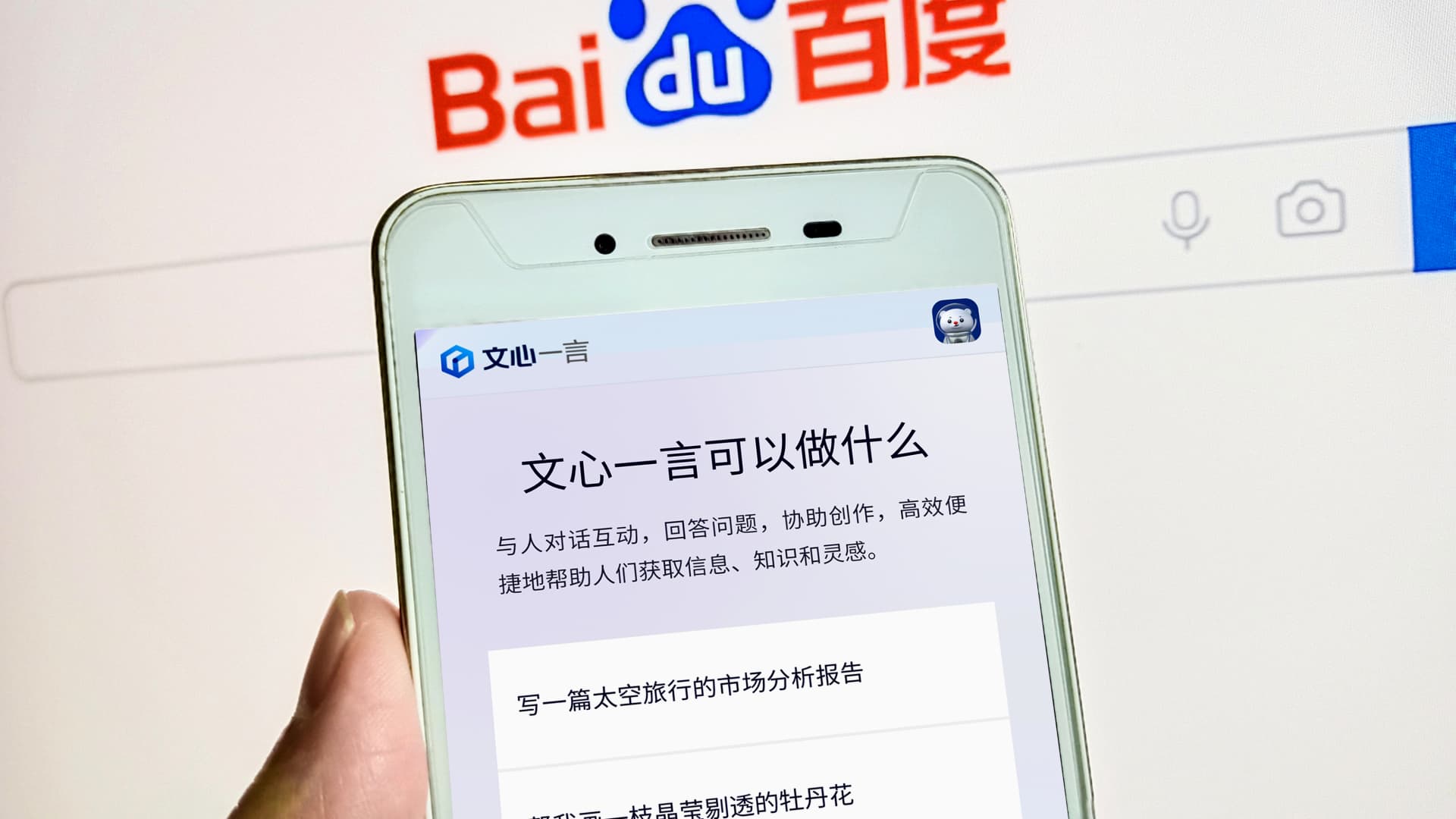BEIJING — Chinese tech giant Baidu announced Thursday its ChatGPT-like Ernie bot was now open to the public at large.
That signaled a green light from Beijing, and another indication of a more relaxed policy stance on artificial intelligence.
Baidu released Ernie bot on March 16. Initial access was limited to the company’s business partners and people who had first joined a waitlist — whose numbers swelled to more than 1.2 million before Baidu stopped disclosing them.
As of Wednesday, CNBC was able to access Ernie bot without the prior restriction of having to enter a Chinese ID number.
Chinese companies have rushed to announce generative AI projects since OpenAI’s ChatGPT surged in popularity worldwide earlier this year. ChatGPT isn’t officially allowed in China, where access to Google and Facebook is blocked.
Despite that level of control, China’s top leaders have made high-profile comments about the need to develop domestic technology, with specific mention of artificial intelligence.
On Aug. 15, China’s “interim regulation” for the management of generative AI services took effect.
The rules said they would not apply to companies developing the AI tech as long as the product was not available to the mass public. That’s more relaxed than a draft released in April that said forthcoming rules would apply even at the research stage.
The latest version of the rules also did not include a blanket license requirement, only saying that one was needed if stipulated by law and regulations. It did not specify which ones.
China has generally increased regulation on personal data protection and network security.
During an earnings call last week, Baidu CEO Robin Li called the new rules “more pro-innovation than regulation” and said the company was “quite optimistic about the future for a better regulatory environment.”
At the time, Li said the company was “still waiting for the green light for large-scale rollout of Ernie bot for use in consumer facing apps.”
Other Chinese companies, including Alibaba, have been releasing a slew of generative AI products.
Last week, Opera web browser parent Kunlun Tech released to the public an AI-powered chatbot and search engine called Tiangong AI search. The company compared it to Microsoft Bing’s integration with OpenAI, since Tiangong also provides internet links with its results.
Previously, the majority of such AI products in China were only available for corporate partners’ internal use.
It is not clear how the chatbots’ underlying technology compare with ChatGPT’s. Basic functionality is generally the same, although Ernie bot and Tiangong primarily operate in Chinese. Both have standalone iPhone apps.
ChatGPT’s popularity started to wane in June, despite the launch of an iPhone app in May, according to a Bank of America report.
— CNBC’s Kif Leswing contributed to this report.
